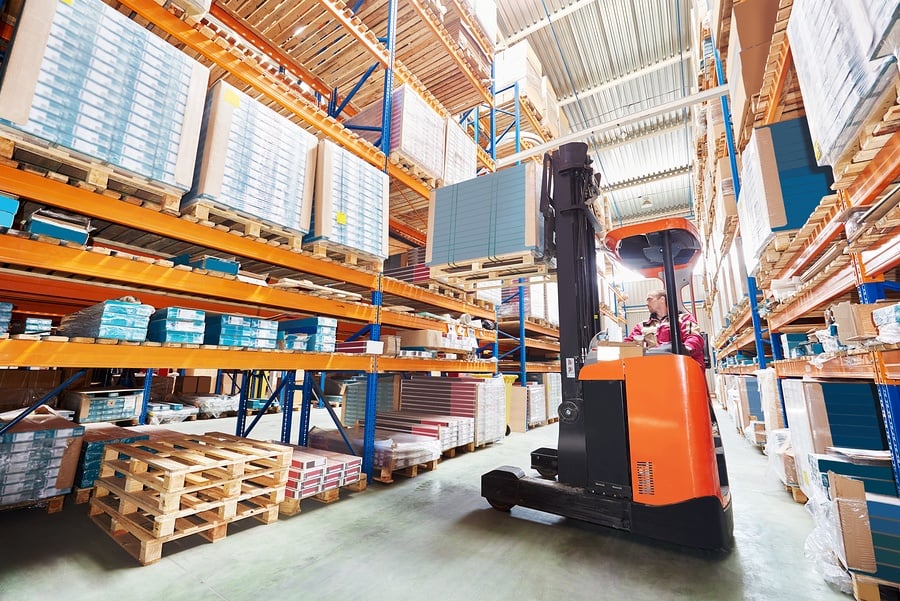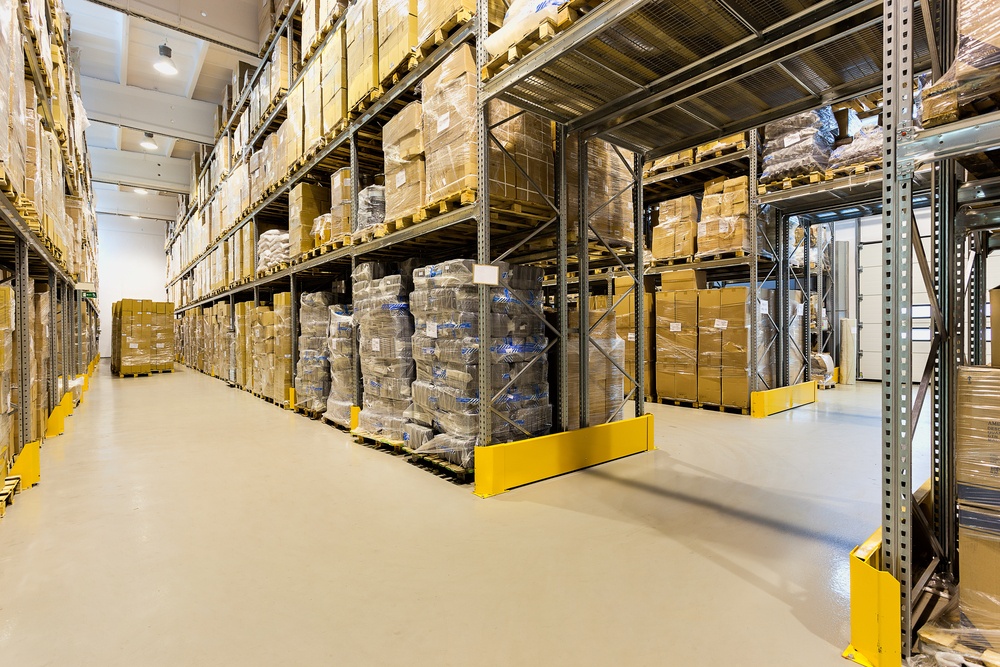10 Warehouse Management Tips To Optimize Productivity
Your warehouse productivity is directly linked to your ability to organize your operations and motivate your top performing employees. Ten great tips...

What kind of warehouse are you going to run? That is the question. An even better question may be: how do want your clients and prospects to perceive your warehouse identity? Let's discuss...
In the world of warehouses, there is no such thing as one size fits all. All warehouses are developed with the understanding that both time and space will be finite. Finding innovative ways to maximize both is essential.
For instance, a wide-open warehouse with easy access aisles and open areas might make moving stock quick and easy, but it means sacrificing valuable real estate. On the other hand, a warehouse built with maximum storage space in mind could require extra time to navigate.
Ask yourself this question: Do you want to focus on speed, storage, or find a happy medium between the two?
Most warehouses are judged by their cleanliness and organization. It's THE visual cue of a well-maintained facility. It's not just about being aesthetically pleasing. It's also about safety. Having clean aisles and tools that are stored away in their proper place helps to prevent injuries and reduces the need for unproductive pauses in work.
These two factors also apply to product storage, whether it be in the racks or on the floor. When it comes to stacking product on the floor, it's important to that the product is stacked evenly. This helps with space utilization, as well as the preventing product damage. It also is a preventative measure to ensure that your warehouse staff is safe.
So ask yourself if this is a characteristic that you want you warehouse to exhibit? Obviously, the answer will be yes. Possibly the better question is: how serious are you when it comes to enforcing cleanliness and organization?
Inventory accuracy is very important for warehouse. What do we mean by accuracy of inventory? This is the ability to retrieve the correct product when called upon. Inventory accuracy is tied to a warehouse's ability to catalog product properly and input data correctly.
So what causes inventory inaccuracy? There are many reasons for this issue, but the main causes are data entry errors, cataloguing errors, and a lack structure/process for receiving the product.
If you want your warehouse to be known as a warehouse with a high inventory accuracy, you need to have a process in place, as well as good management to ensure that this process is followed. At RBW, we believe that we are like a bank. Our warehouse is the safe, and our clients' products are the valuables stored inside that safe. If you make a $100 deposit into the bank, you expect to have access to those funds when you need them. Inventory inaccuracy is like only getting back $96 when you attempt to withdraw the original $100 deposit.
Data visibility is important for making key decisions that can saving a manufacturer money.
What do we mean by visibility of data?
As it pertains to logistics, data visibility is the ability to see and track every step of a supply chain that a piece of product will go through, from manufacturer to end consumer.
How does the data become more visible?
The answer is simple. It comes down to investment in technology, and linking information within databases. So this would typically mean linking a system like SAS with a TMS (Transportation Management System), a YMS (Yard Managent System), and a WMS (Warehouse Managment System). It also include the usage of GPS tracking, as well as other IoT technologies.
You'll need to decide how heavily you're willing to invest in technology to provide visibility to your data and information.
How accessible are you going to be to your clients? Will you be accessible at midnight, or 5am, or only during your typical business hours? Will you be a company that goes the extra mile for the customer? Many warehouses do not.
Emergencies can happen. Many customers want a warehouse that is responsive to unforseen issues. Your customer will appreciate it if you go the extra mile.
So ask yourself these questions: "Do I want to be considered a warehouse that is willing to go the extra mile?" "Do I want our clients to be able to reach us, not just during regular business hours, but whenever they need us?"
So now we start to look into the things that truly make you an asset to your customer. Are you just a warehouse provider, or do you add value to their supply chain? Are you doing the bare minimum, or going above and beyond?
The scary reality is that most people believe managing a warehouse is fairly simple - just a matter of taking product off a truck and storing it away. They don't understand the absolute necessity of cataloguing, scanning, optimum space utilization, correct data entry, scheduling, and more.
Consequently, people believe that all warehouse providers are created equal, and are therefore easily replaceable. This is why it's so important to differentiate yourself, not just as a warehouse provider, but also as a partner that adds value to a customer's supply chain.
Don't preach it - live it. Be a proactive partner that helps your customers improve the efficiency of their supply chain. Give suggestions on how they can improve their processes, and how you can help them achieve their goals.

Your warehouse productivity is directly linked to your ability to organize your operations and motivate your top performing employees. Ten great tips...

5 Ways To Cut Out Overspending In Your Warehouse Operations So, you want to know to how reduce the spending when operating a warehouse? It takes a...

Effective warehouse management can be summed up in three words – Control, Co-ordinate, Communicate. Today’s warehouse environment is more than a...